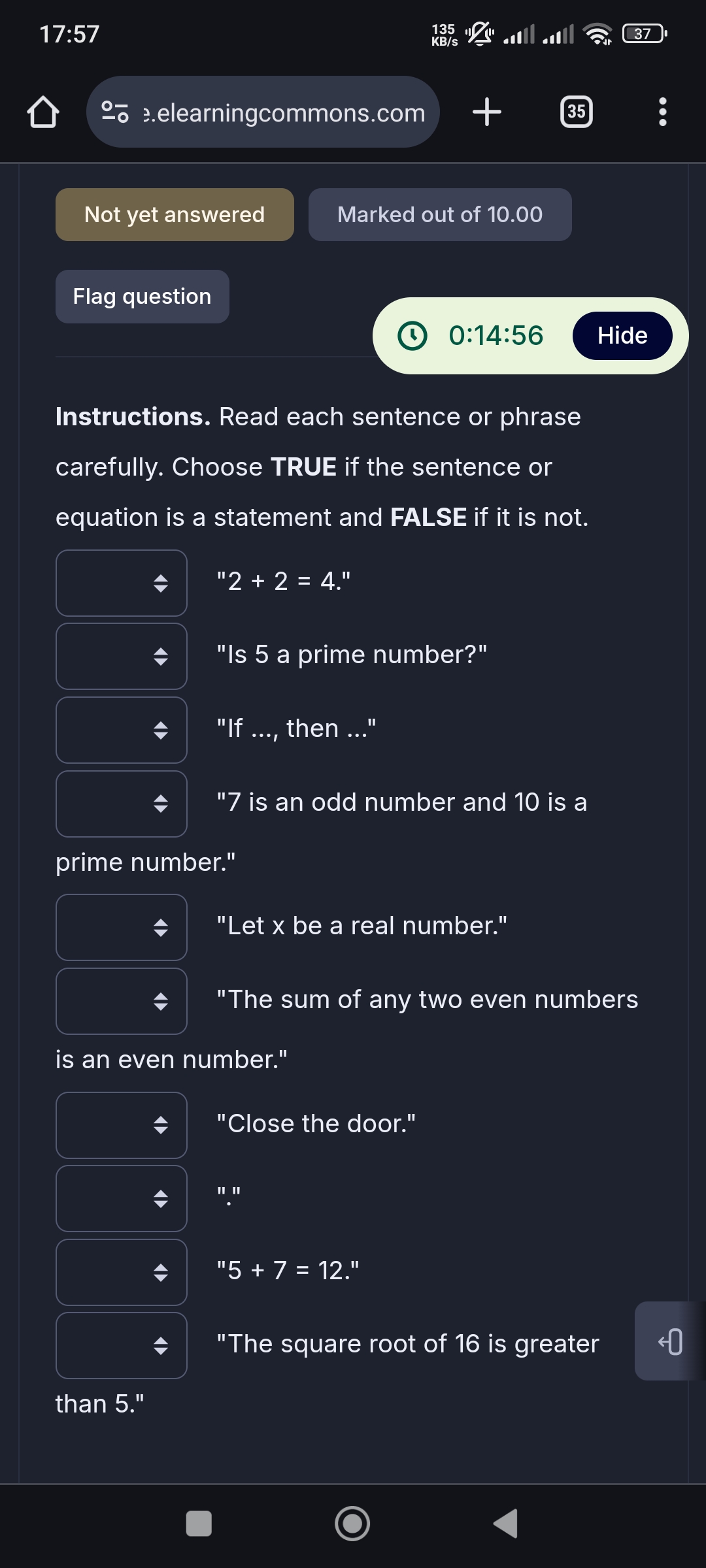Choose TRUE if the sentence or equation is a statement and FALSE if it is not for the following sentences.

Understand the Problem
The question provides a set of statements that require evaluation to determine if they are true or false based on mathematical principles. Each statement represents a different kind of mathematical truth or logic that needs to be assessed.
Answer
1. True 2. True 3. False 4. False 5. True 6. True 7. False 8. True 9. False
Answer for screen readers
- True
- True
- False
- False
- True
- True
- False
- True
- False
Steps to Solve
- Evaluate the first statement: $2 + 2 = 4$
This statement is true, as the sum of 2 and 2 equals 4.
- Assess the second statement: Is 5 a prime number?
This statement is true; 5 is a prime number because it has no divisors other than 1 and itself.
- Analyze the third statement: If ..., then ...
This phrase is incomplete and does not present a definitive statement. Therefore, it is false.
- Evaluate the fourth statement: $7$ is an odd number and $10$ is a prime number.
This statement is false because, while 7 is odd, 10 is not a prime number (it has divisors other than 1 and itself, namely 2 and 5).
- Review the fifth statement: Let $x$ be a real number.
This is a valid mathematical statement but does not assert any truth value. Hence, it is considered true.
- Check the sixth statement: The sum of any two even numbers is an even number.
This statement is true. When you add two even numbers, the result is always even.
- Examine the seventh statement: Close the door.
This is a command, not a mathematical statement, making it false.
- Assess the eighth statement: $5 + 7 = 12$.
This statement is true; the sum of 5 and 7 equals 12.
- Evaluate the ninth statement: The square root of 16 is greater than 5.
This statement is false because the square root of 16 is 4, which is not greater than 5.
- True
- True
- False
- False
- True
- True
- False
- True
- False
More Information
- The evaluation includes basic arithmetic, properties of numbers (like prime numbers), and logical reasoning.
- The terms true and false are often used in mathematics to express validity.
Tips
- Misinterpreting incomplete phrases as true statements.
- Confusing prime numbers with other categories of numbers.
- Miscalculating simple arithmetic sums.
AI-generated content may contain errors. Please verify critical information